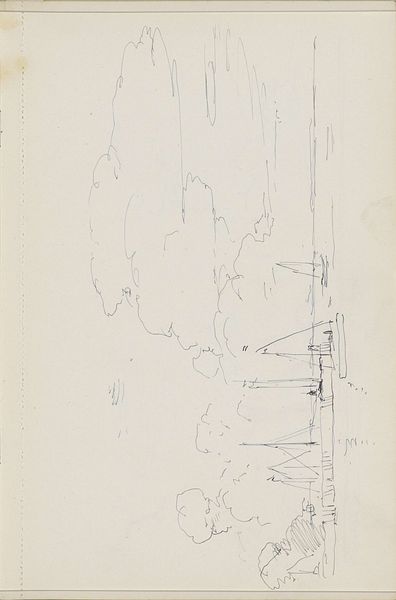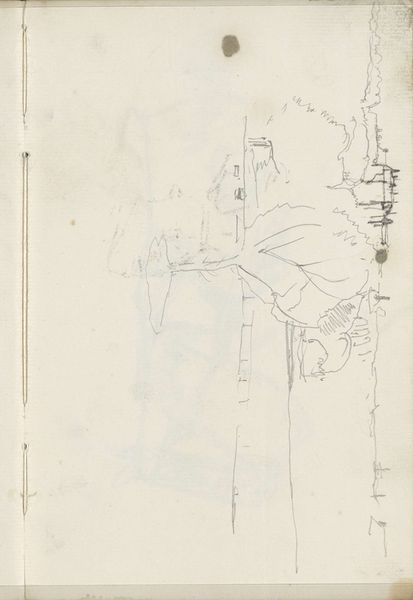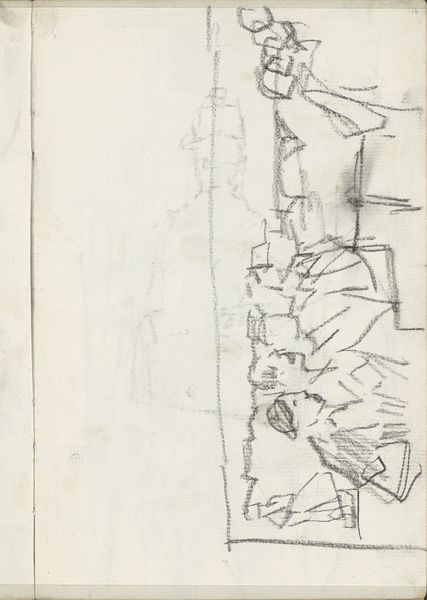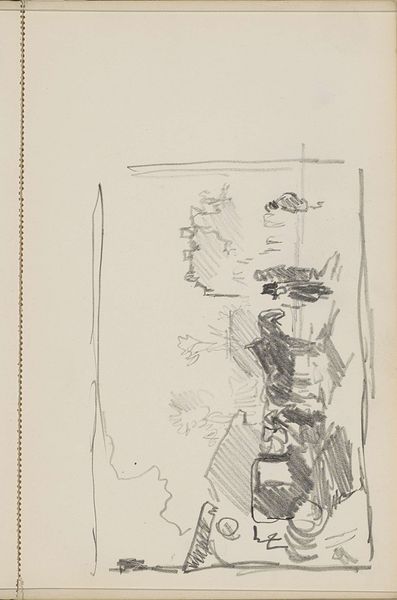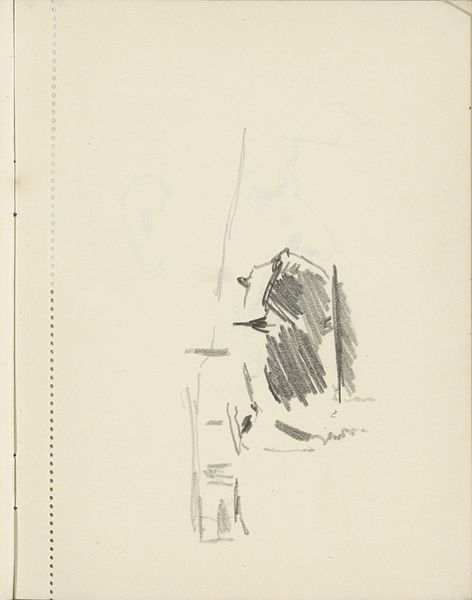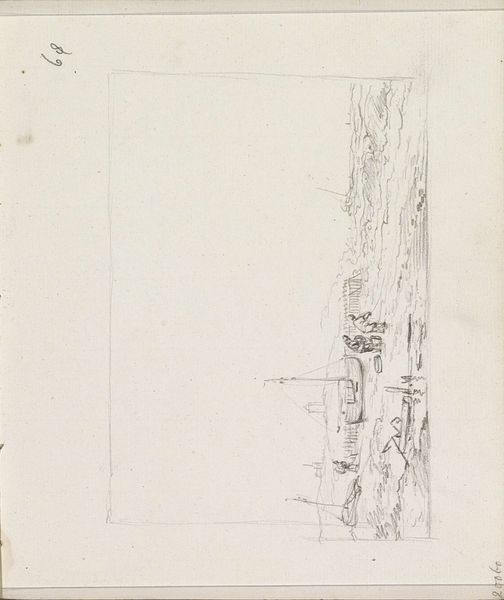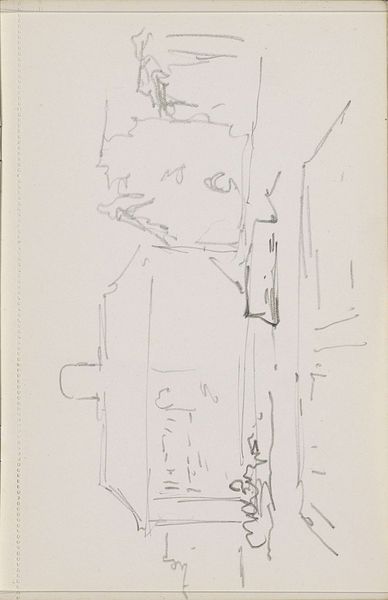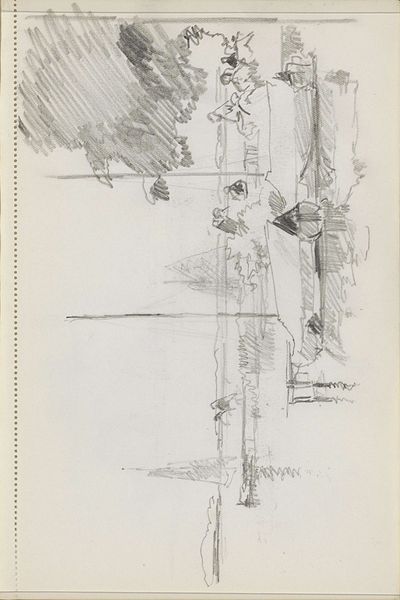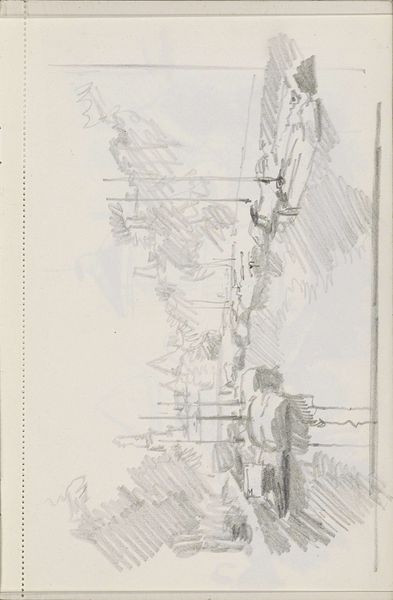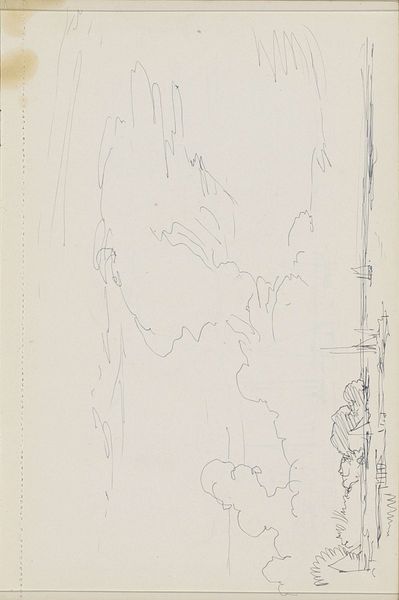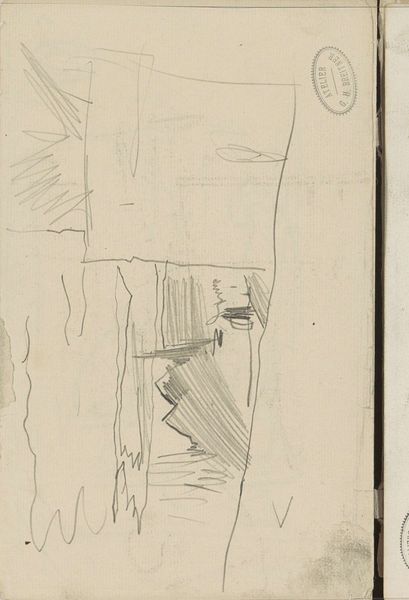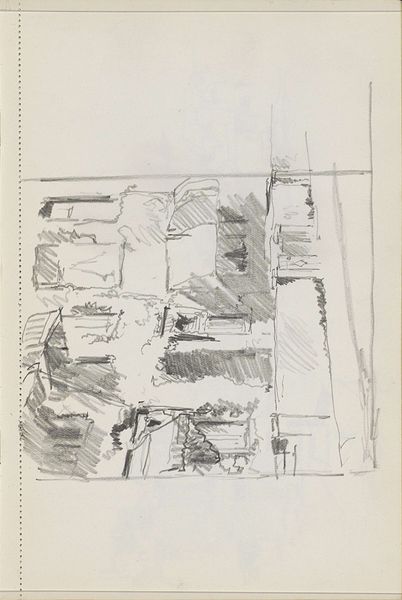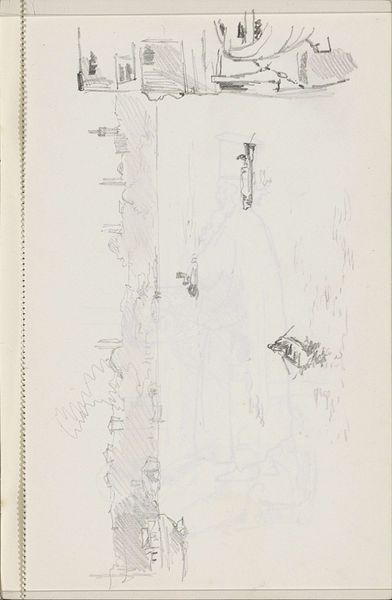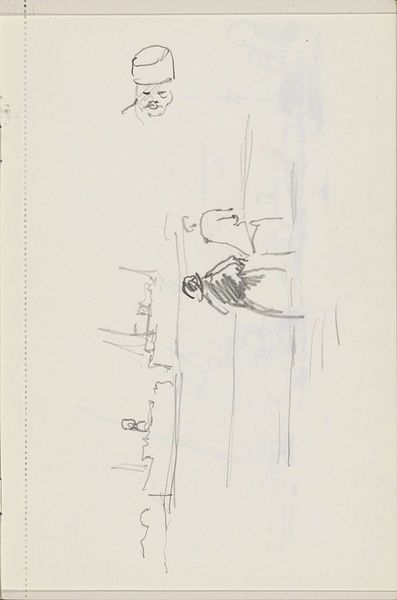
Copyright: Rijks Museum: Open Domain
Editor: So here we have a pencil drawing, *Landschap met huizen aan een waterkant*, or *Landscape with houses on a waterfront*, created by Cornelis Vreedenburgh sometime between 1890 and 1946. The first thing that strikes me is how minimal it is, almost like a memory fading onto the page. What catches your eye when you look at this? Curator: That's beautifully put. Fading memory is a perfect description! For me, it's the stark simplicity, the way Vreedenburgh captures the essence of a place with such economy of line. It feels incredibly intimate, like a glimpse into his personal sketchbook. I see the bones of a landscape, houses clustered near water. There's a strong emphasis on the vertical, don’t you think? Makes you wonder, why that compositional choice? Editor: I do see that strong verticality! It almost feels like he's emphasizing the height of the trees or perhaps the reflections in the water. Is that common in landscape sketches from this period? Curator: It’s less about commonality, and more about the artist’s vision, their individual language. I imagine him quickly jotting down these lines, trying to grasp the feeling of the place rather than creating a photographic likeness. Notice how he uses a sort of shorthand for the foliage – little zigzags that hint at leaves. Makes you think about what *isn’t* there, doesn’t it? The implied textures and the spaces in between the lines… it’s almost more potent *because* of its bareness. Editor: It's amazing how much information he conveys with so little detail. Looking at it now, it really does feel more like an impression than a detailed depiction. I guess I hadn't considered the power of suggestion in a piece like this before. Curator: Exactly! He trusts our imaginations to fill in the blanks. It’s an invitation to collaborate with the artist, to build the landscape together. And isn't that the real magic of art? It is more evocative and invites engagement and it opens our minds. Editor: Definitely! I'm starting to see it less as a simple sketch and more as a kind of atmospheric poem. Curator: An atmospheric poem… I love that! Maybe art and poetry are never that different, when they meet in expression of emotions and insights.
Comments
No comments
Be the first to comment and join the conversation on the ultimate creative platform.
